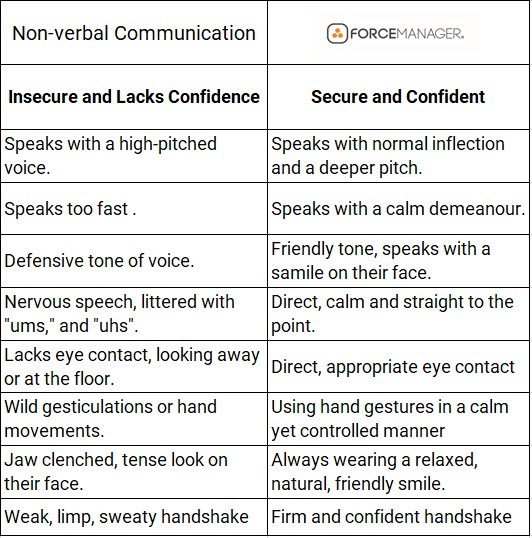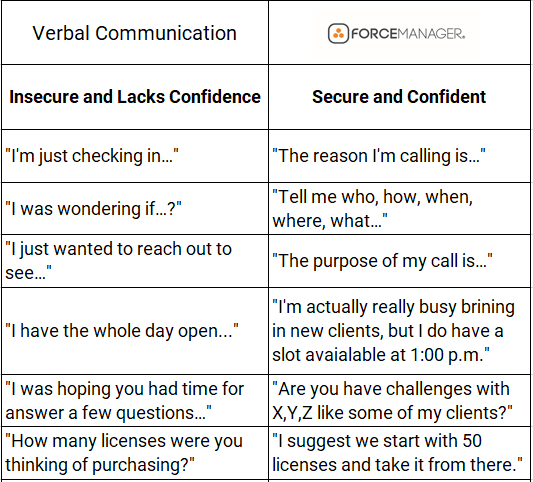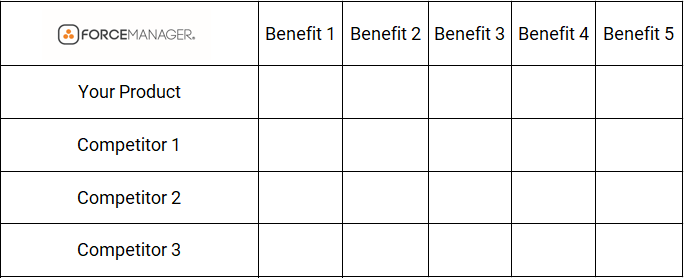Product
Features
column
column
Add-ons
Integrate
Custom Versions
Customers
By Industry
By Role
Success Stories
column
column
Pricing
Resources
Product Support
Education Resources
section
7 min read
Covering the core, basic sales training topics without boring your sales team to death is tough to say the least.
The “go-to method” of repackaging general sales material into presentations (the same we all slept through as reps) and plowing through them slide by slide doing our best not to sound like Ben Stein is hardly inspiring stuff. Yet we still scratch our heads wondering why our pearly wisdom isn’t retained and replicated by our teams out in the field.
So caught at a loss, we often resign ourselves to defeat – postponing these sales training sessions until the next quarter, or the next quarter, or the one following that…
Of course we never actually get around to doing any training which is bad news bears!
Why?
Because the only thing worse than having well-trained sales reps leave is having the untrained reps stay.
If you think about it, other fully-fledged professions require anywhere between 3-4 years schooling AND additional speciality training before they are set loose. Now I’m not saying salespeople need college degrees in order to be successful, but at the very least have more than the old sales meeting or manager’s “pep talk” before being asked to bring in record sales quota.
So to turn all that around I’ve put together three suggested sales training topics along with some techniques to keep your sales team engaged and actively using the skills they’ve learned when out in the field.
The three sales training topics include:
Before we fly straight into prospecting I want to recommend to you one of the truly tried and tested sales training ideas which is to put together a gap analysis.
A gap analysis is essentially the acknowledgment that there is a perceived “gap” between a rep’s current knowledge of a certain sales skill set and that of which is required. This is something that should be assessed individually by the sales rep and manager with a follow-up meeting scheduled to review the results. It can be completed on a table looking something like this:

Alternatively you could just try asking your field sales team.
What are the sales training topics they’d like to work on? Which areas do they feel they are weaker at? Where do they think you, the sales manager, could lend a little more support?
At the end of the day nobody knows their weaknesses better than they do. By asking your team for feedback it also shows you’re taking an active interest in developing their skills, too – something many managers are deemed to fall short of.
Whichever option you decide to go with, make sure you establish a common ground with your sales team, or in other words, that you are both clear that focusing on the elected sales training topics is going to add value to their work. If not, reps will always perceive the training as a burden or cost rather than an investment.
From my personal experience I’ve found that plenty of sales trainers and managers are adept at teaching reps how to handle objections or the steps of the company’s selling process, but a little less enthusiastic when it comes to prospecting.
So much so that in some cases it’s glossed over to the point of complete obscurity, which is crazy considering it’s one of the most important sales training topics to focus on.
I think the reason for its unpopularity is fairly simple – it can be bloody hard work!
I mean, why would sales reps want to block out time, pick up the phone and dial in a lead? Field reps are supposed to whirl into a client’s office, encourage then to sign on the dotted line and leave in a similar, spectacular style. Prospecting is surely beneath them…
Well, I hate to break it to them but that’s just not the case.
It doesn’t matter how successful or capable a field rep is in closing a deal – they WILL fall devastatingly short of their targets if their pipeline is empty.
If there are no prospects, there’s no pipeline and without a pipeline, you’ve got no sales.
Aggravatingly simple isn’t it.
Unfortunately there’s no magic pill, silver bullet or fairy pixie dust yet invented to solve this problem.
“We were born with two ears and one mouth for a reason, Julien.”
This piece of advice from an old sales director has stuck with me throughout my sales career. Of course what she was referring to was that as sales reps, we need to spend more time listening than we do talking.
Without the focus on the correct sales training topics field reps too often qualify leads and send them down the pipeline when they are simply not a good fit.
Why? Because they didn’t listen carefully enough to what the lead was saying to them on that initial call. If they had done, they would have known to discard that particular lead straight away and avoid wasting essential resources later on down the line.
In an earlier post on sales training activities I explained how reps could utilize the BANT method to combat this. It lays out a structure or roadmap for sales reps to follow when prospecting potential customers:
Essentially when prospecting you should teach your field sales team to first ask if they have the budget, authority, need and timeframe with which to pursue your solution.
If not, on to the next one – no hard feelings!
You’ll often hear cries from your sales team who swear down by their single method of prospecting.
“Oh, but I’m far better at social/emailing/face-to-face than on the phone.”
But look at it like this way, if your best friend or spouse came running in this morning telling you they’d invested all their money in a single stock, assured to them to be a “sure thing,” you’d gawp in disarray.
“It’s financial suicide!” you plea “There’s a reason why experts diversify their stock options to minimize risk you big dummy…”
And you’re right to warn them so – sales prospecting is no different. By focusing on a single channel for prospecting they are seriously limiting the number of prospects that could be brought into the fold.
Now the most successful channels for prospecting will vary depending on the industry, territory and time that a field rep has been operating in a given area. For example, if you’ve recently expanded into a new territory or your field rep is new to the organization, it’s likely they’ll have to pick up the phone a lot more or dedicate a greater allotment of time making face-to-face visits.
On the other hand, if they are more established at the company or a well known throughout their territory, more time could perhaps be dedicated to social selling and working on referrals.
Again, as a sales manager you could create a gap analysis table to pinpoint the specific areas of weakness within your team’s prospecting skill set to determine the direction of your training sessions.
The second of the three sales training topics to look at is how to handle objections.
This time it doesn’t matter which industry, territory or company you work at; your field sales reps will at some point face customer objections and as such, will need a strategy to overcome them.
But before we look at some strategies for handling the specific objections your sales team is facing on a daily basis they must, as Jeb Blount so elegantly laid out in his book Objections: The Ultimate Guide for Mastering The Art and Science of Getting Past No:
“Ditch their wishbone and grow a backbone.”
In the world of sales it’s confidence that rules supreme. Whether it’s pitching to a prospect on the phone, delivering a presentation in front of a group of stakeholders or a 1-to-1 with the company’s key decision maker they must be seen as capable, reliable figures of authority.
If not, how can you expect them to trust in you, your product and your company?
A passive, “beating about the bush approach” will get your field reps well and truly steamrolled not only by prospects but eventually the competition too. So when considering sales training topics to cover at the next meeting, make sure to put building confidence at the top of the list.
Now you’ll want to train your reps in both verbal and non-verbal communication seeing as they will be working face-to-face with prospects and clients. And to help with that, I’m going to borrow a couple of extremely useful tables from Blount that I’ve found invaluable when coaching my field sales team.
First up, let’s look at non-verbal communication:

And now verbal communication:

During or after a series of both verbal and non-verbal (face-to-face) role plays with your team, note down in which category each of your reps fall into in specific situations. This way you can pinpoint their strengths and weaknesses and deliver personalized selling skills training specific to each field rep’s needs.
I recommend you use real-life examples for your role plays, ideally from your current sales process as opposed to hypothetical situations. Not only does it ensure the training remains actionable and specific, but experienced field reps tend to prefer real-life scenarios.
You can either use recordings (if it’s a prospecting call by phone) or previous case studies/examples from the field reps themselves.
After you’ve dealt with the manner in which your team interacts it’s time to tackle the specific objections your reps face on a day to day basis.
So first off, you need to make a list of them. You could do this yourself, but I find it better and more inclusive if you include the feedback from the rest of the team here. They are the ones dealing with clients and prospects on a daily basis after all.
When you’ve completed that, you’ll probably be left looking at a list dealing with the following objections:
Now it’s a case of going through each objection, one at a time and articulating a confident, effective response. This exercise is also better completed as a team. Ideas can be bounced off one another and examples that have worked in the past can be share with the rest of the team.
This could also be a good time to bring in an external consultant to review your process. A fresh set of eyes can sometimes uncover inefficiencies previously unseen by you or your sales team.
It’s a big ol’ world out there and unless you’re extremely fortunate, you’ll be vying for customer attention against a whole host of competitors. That’s why the third and final sales training tropics up for review focuses on understanding and knowing your competitors.
Now the best way to do this is by completing a Competitor Matrix.
It looks something a little like this:

What it does is essentially pit you up against your competitors, highlighting the weaknesses and strengths of each one.
Start by identifying which features and benefits your product or service has. Then, one by one go through and mark out in the table either with an “X” or bolding out in color the competitors that too have the same features and benefits.
The squares that are left blank i.e. those that highlight where the competition are not offering the same benefits as you are, are the areas your field reps should be focusing on.
Armed with this information you can then start to formulate pitches and tackle objections based on which of your competitors a prospect is currently contracted to. Add them to your objections table and get it printed off or uploaded to your field sales app. That way it can be accessed review and updated by field reps when they are out on the road.
So to wrap things up I think the key takeaways here are 1). Get your team on board with committing to a sales training session and 2). Building their confidence when meeting with clients. It doesn’t matter if they are prospecting or handling customer objections; overcoming an innate fear of rejection is key if you are to unlock their potential as field sales reps.